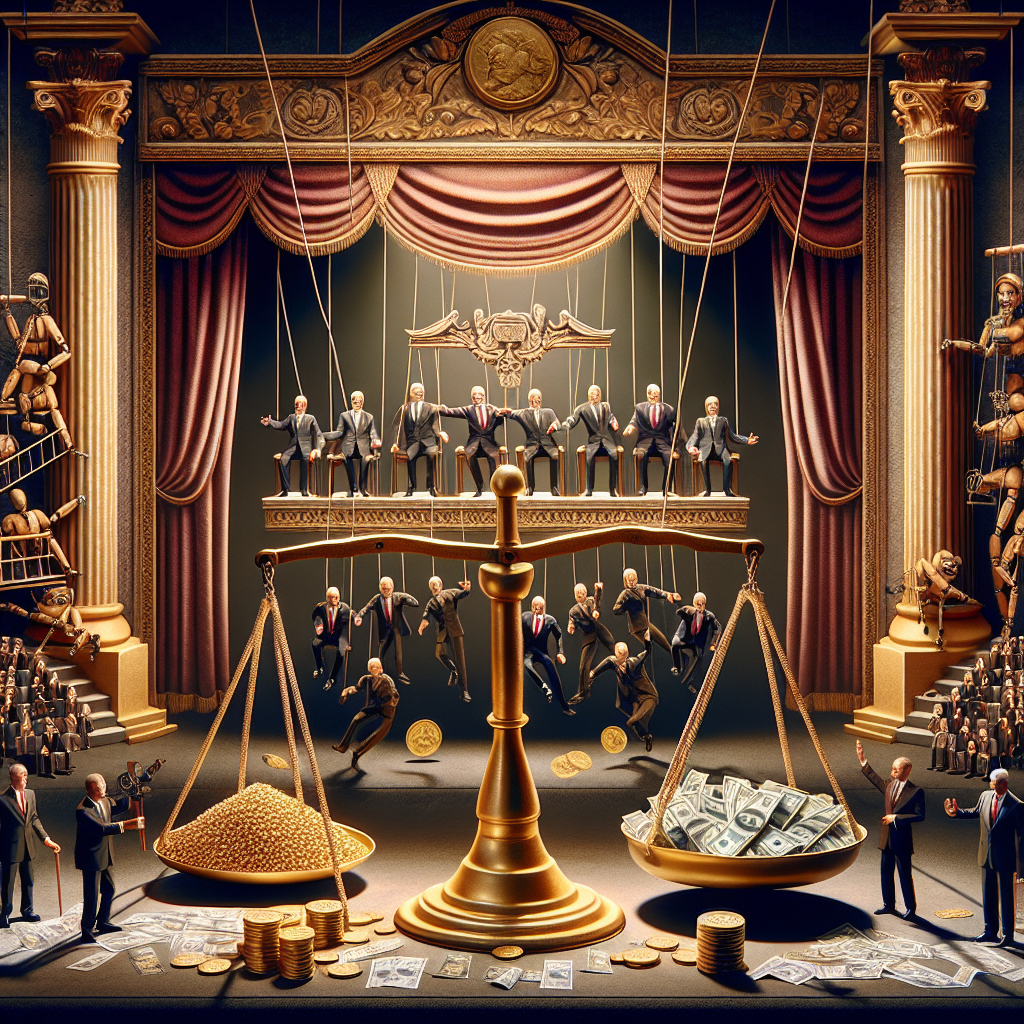The author, John Leake, argues that unrestricted federal money creation is a fundamental flaw that has led to the decline of the U.S. Constitutional Republic. He contends that the federal government, influenced by oligarchs, has engaged in a rampant creation of debt, resulting in billions funneled into industries that benefit a few powerful individuals rather than the American populace. The author believes this misallocation of resources manifests in various sectors, including military engagements, healthcare stemming from engineered pandemics, climate change initiatives, and social justice programs. These actions are framed as benefiting society; however, Leake asserts they primarily serve the interests of the wealthy elite who control these agendas.
The critique extends to the current political landscape, particularly the figure of the President, whom he characterizes as a mere puppet of the oligarchs, sustaining a façade of leadership while actively participating in wealth redistribution schemes that often exacerbate social divides. Leake paints Vice President Kamala Harris in a similarly critical light, suggesting she lacks the intelligence and self-awareness necessary to recognize that the beneficiaries of these governmental programs are often among the wealthiest individuals. Instead, the author posits that her superficial engagement with social justice is a performative act aimed at maintaining her image, rather than a genuine commitment to philanthropy or equity.
Central to Leake’s argument is the idea that widespread animosity toward political opponents clouds public judgment and rational discourse. He believes that many citizens are driven by a visceral hatred toward political adversaries, particularly toward figures like Donald Trump, which hinders their ability to critically assess the implications of policies or actions taken by their own leaders. This polarized mindset is seen as a key factor that has allowed such unsound fiscal policies to continue unchallenged and unchecked.
The author also raises concerns about the complicity of certain Republican leaders in perpetuating this dire situation. Leake suggests that many Republicans express opposition to the prevailing conditions yet fail to enact substantive change. He views this negligence as indicative of a larger malaise within the party, one that seems curiously aligned with the interests of the very entities they claim to oppose. This lack of robust opposition leads Leake to question whether there exists an intentional strategy to maintain the status quo, contributing to the further entrenchment of oligarchic control.
Moreover, Leake elaborates on an alarming hypothesis regarding the manipulation of political opposition, particularly how Trump was effectively positioned to ensure the election of Kamala Harris. He references the Democratic National Committee’s 2015 “Pied Piper Strategy,” which aimed to leverage Trump’s polarizing nature to galvanize a voting base that would otherwise consider alternative political candidates. This Machiavellian tactic is presented as evidence of a deeper manipulation by entrenched power brokers who perceive the tumult of political division as beneficial to their agenda.
In conclusion, Leake’s reflection offers a critical lens through which the entangled relationship between money, politics, and power can be examined. He underscores the need for an awakening among the electorate to recognize the realities of systemic corruption and the illusion of choice perpetuated through controlled political opposition. The author’s contentions serve as a call to vigilance among citizens against complacency toward economic mismanagement and the erosion of democratic principles, positing the urgent need for reform to rectify the detrimental effects of oligarchic governance.

